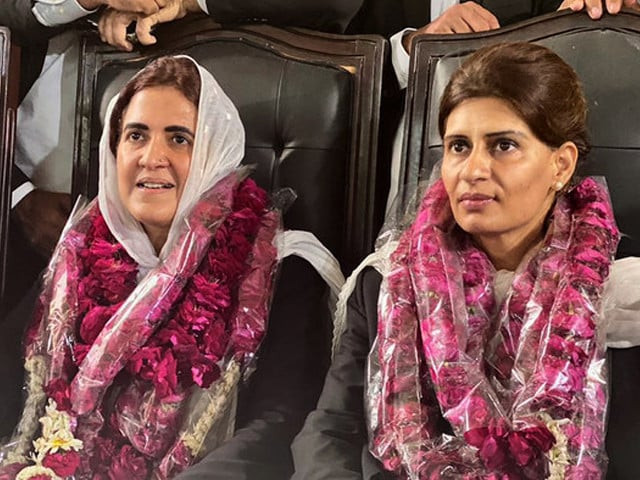Precisely a century ago, the Legal Practitioners (Women) Act 1923 was enacted to remove the legal bar on women from practicing law in British India. A 100 years later, in an unprecedented move, the Lahore High Court Bar Association (LHCBA) elected its first female secretary, Sabahat Rizvi, in its 130-year history. In another record of simultaneously having two women in the cabinet, the bar elected Rabbiya Bajwa as vice president (VP), making her the third woman to hold this office. The bar had previously elected Rabia Sultan Qari and Firdaus Butt in 1959 and 2007 respectively. Thus, it is safe to say that history has been made.
While the outcome of these recent bar elections is worthy of applaud, the question yet remains: can these two appointments, no matter how laudable, magically erase the considerable impediments faced by female lawyers and judges throughout the country?
Pakistan is one of the few countries with the lowest number of female lawyers and judges. According to the 2020-21 study titled, ‘The State of Women’s Representation in Law,’ out of the 202,236 lawyers in the country, female lawyers make up only 12 per cent of the fraternity. The situation is far worse as one transcends towards the superior courts of Pakistan, most notably the Supreme Court, where the representation of female lawyers is abysmally low, as only four per cent are registered to practice in the highest court of the land. Till date, not a single woman has ever been elected to the Pakistan Bar Council, the highest regulatory body of elected lawyers formed under the 1973 Constitution.
Female legal professionals are considered temporary entrants into the field. It is normally expected that either they would tire up to the demands of the profession, get married or fully and/or partially leave the profession in one way or another. The legal profession itself relies on societal constraints pulling the female population away from it. For instance, female associates are often not encouraged to go to the rostrum to argue themselves and are instead tied down with repetitive, menial and preparatory tasks. There is also a general perception that certain judges tend to not take female litigants seriously or blatantly accord precedence to their male counterparts, reposing greater trust in the male lawyer’s capabilities. This inherent, systemic and violent patriarchal structure of the legal profession further impedes female lawyers’ access to networking opportunities.
To say that the bench is inclusive would be an utter misrepresentation. Why don’t we see more women in the superior courts despite there being an increase in the number of female lawyers entering the profession with each passing year? Women are rarely elevated to the higher courts in Pakistan. In its 75-year history, it was not until last year when one witnessed the first female judge, Honourable Justice Ayesha A Malik being appointed to the Supreme Court of Pakistan. Her elevation was an arduous task coupled with country-wide protests calling for boycotting court proceedings, which clearly exposes the patriarchal culture prevalent within the legal fraternity.
The role of the judicial organ of any state is to foster legitimacy and deliver justice to all. It is both generating and generated by public reason – a basic societal rationale which governs and underpins the law. In the Pakistani legal system, such public reason entails examples such as the ‘reasonable-man standard’ or the character assassination of women in child custody cases or even in a more harrowing way when the entire justice system takes pride in compromising rape cases, often encouraging rape survivors to marry their rapists. If the judiciary cannot take note of such deep patriarchal public reason or adjust itself in a way which ensures consistently serving justice to all, and convince each and every segment of the society that they can be relied upon, it will not foster credibility or legitimacy.
The goal should be to make a legitimate, equitable and a trustworthy justice system with an infrastructure that tackles the considerable barriers faced by female lawyers and judges. This distant dream can only be achieved if there is inclusivity within the legal fraternity, a greater representation of women and other marginalised sections on both, the bar and the bench.
They say justice must not only be done but also must be seen to be done. Now more than ever, it would be good to see it done by women.



COMMENTS
Comments are moderated and generally will be posted if they are on-topic and not abusive.
For more information, please see our Comments FAQ